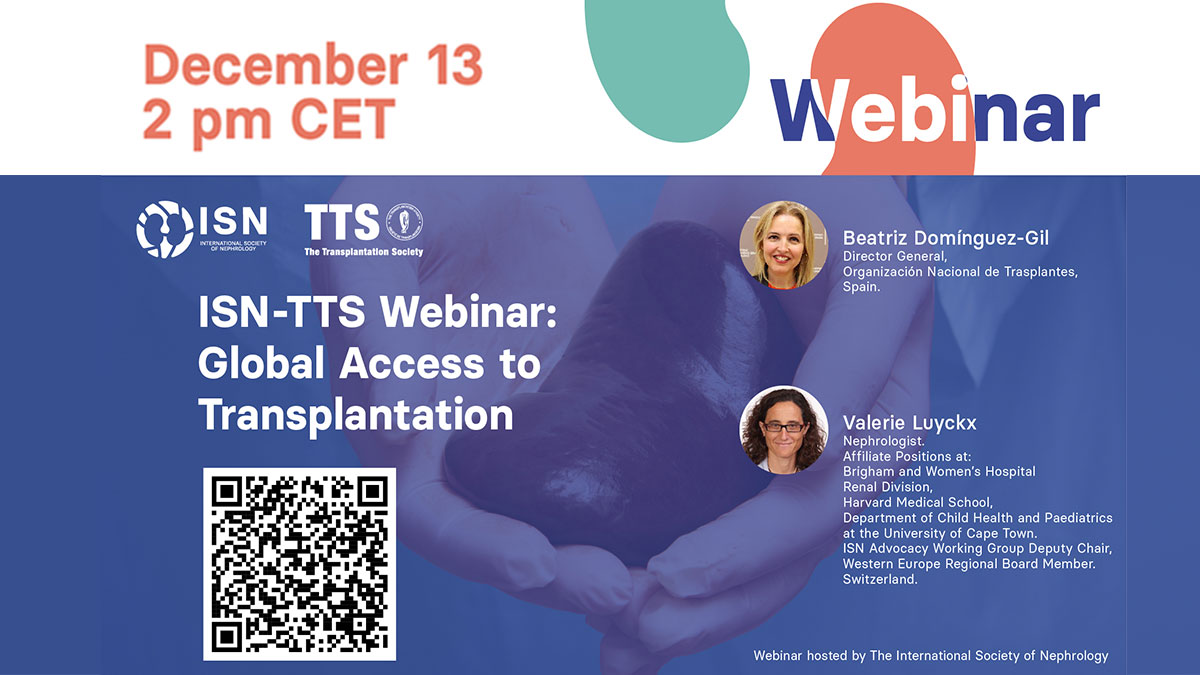Webinars
This page contains exclusive content for the member of the following sections: TTS. Log in to view.
ISN-TTS Webinar: Global access to transplantation
138.1 - ISN-TTS Webinar: Global access to transplantation
Presenter: Beatriz Domínguez-Gil, , Valerie Luyckx, ,
Authors: Beatriz Domínguez-Gil, Valerie Luyckx

Transplantation is the best and frequently the unique treatment for patients with organ failure that primarily results from non-communicable diseases, which burden is increasing in nearly all countries throughout the world. According to data from the Global Observatory on Organ Donation and Transplantation (GODT), close to 154,000 organ transplants were performed in 2019. Yet the World Health Organization (WHO) estimates that this constitutes only 10% of the organs needed for patients diagnosed with end-stage organ failure. The disparity between supply and demand of organs has likely been exacerbated during 2020 due to the COVID-19 pandemic, with an estimated decline of 15% in global transplant activities. Countries have also unequally developed organ transplantation, not only quantitatively, but also in terms of reliance upon living versus deceased donors.
Presentation Objectives:- To understand the global transplant needs and the current access of patients to transplantation
- To identify factors that may impact the development of deceased donor transplantation
- To describe strategies that can contribute to increasing the availability of organs from deceased donors
Important Disclaimer
By viewing the material on this site you understand and accept that:
- The opinions and statements expressed on this site reflect the views of the author or authors and do not necessarily reflect those of The Transplantation Society and/or its Sections.
- The hosting of material on The Transplantation Society site does not signify endorsement of this material by The Transplantation Society and/or its Sections.
- The material is solely for educational purposes for qualified health care professionals.
- The Transplantation Society and/or its Sections are not liable for any decision made or action taken based on the information contained in the material on this site.
- The information cannot be used as a substitute for professional care.
- The information does not represent a standard of care.
- No physician-patient relationship is being established.
Contact
Address
The Transplantation Society
International Headquarters
740 Notre-Dame Ouest
Suite 1245
Montréal, QC, H3C 3X6
Canada
Используйте Вавада казино для игры с бонусом — активируйте промокод и начните выигрывать уже сегодня!
